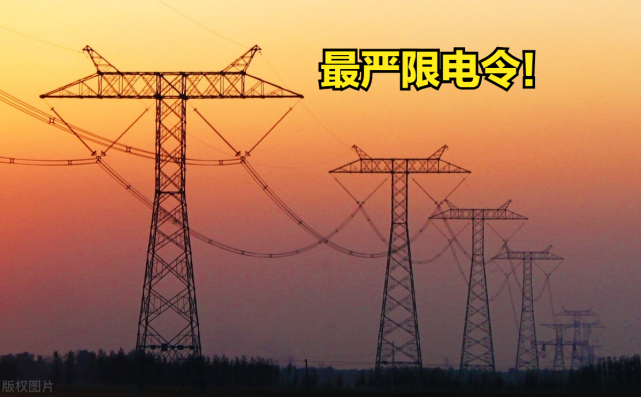It is reported that the recent power supply of more than 10 provinces in China, such as Jiangsu, Guangdong, Shandong, Guangxi, Yunnan, Zhejiang and so on, and a number of enterprises have also introduced measures to “reduce power supply”. In many places, there is a situation of “two to five”, “one to six”, that is, work can only be started one or two days, two or three days a week.
For example, Guangdong said that the implementation of the “open two stop five” plan from September 16; Shandong started emergency power rationing because of low coal supply. The Jiangsu government supervised the energy conservation of enterprises that consumed 50,000 tons of coal annually, and more than 1,000 enterprises “switched on and off”. Zhejiang province has limited power to energy-intensive enterprises, with 161 enterprises in Shaoxing alone. For industrial silicon and yellow phosphorus production enterprises in Yunnan, the output from September to December should not be more than 10% of that in August.
In fact, as early as mid-August, the National Development and Reform Commission issued an early warning based on the completion of the “double control of energy consumption” in various provinces, including Guangdong, Guangdong, Jiangsu, Fujian, Yunnan and Shaanxi, requiring them to reduce energy intensity and control the total consumption within the target warning. For those places with too high energy intensity, the planning of major national projects will be suspended. In this context, more than a dozen provinces have intensified the “double control of energy consumption”, adopting production limit to control energy consumption.
With the introduction of the strictest power cuts, many industries have been affected, and the chemical industry is the first to bear the brunt. For example, in the 9 provinces and autonomous regions of the first-level alert, 35 kinds of chemical products account for more than 50% of the production capacity, such as yellow phosphorus, potassium chloride, pesticides, industrial silicon, etc. And lumber industry also is such, the lumber factory such as near future Guangdong, Jiangsu, shandong stops production stoppage in succession.
However, under this wave of “blackout”, raw materials also ushered in a surge. For example, because 90% of enterprises in Jiangsu are affected by “power restriction”, now chemical raw materials are soaring, such as epoxy propane has been priceless, epoxy resin also began to soar. The same is true of thermal coal, whose price has risen to 1407.5 yuan per ton, up 140.09 percent year on year.
Affected by the raw material surge, as well as the “double control of energy”, many listed enterprises have also announced a temporary suspension of production, such as Tianyuan shares said that some branches of the phased suspension, only open a production line, but it is expected that a month down, calcium carbide output is expected to be less than 25,000 tons; Said it would stop production until Sept. 30; Huai ‘an subsidiary announced a temporary suspension of production.
Some people wonder, why in the “gold nine silver ten” production peak season, the country issued a temporary “blackout order”?
1, the lack of coal
Under the influence of environmental protection in recent years, China’s coal output has not increased in 19 years, but electricity consumption has continued to rise, and 70% of China’s electricity is generated by thermal coal. But some time ago, coal supply side reform, resulting in a lot of non-compliance coal mines were closed.
2. Increased production capacity
This year’s export trade is ok, especially for low-end manufacturing and light industry, which consume a lot of electricity, which increases the consumption of coal. As a result, the price of coal is too high, the cost of power generation of power plants increases, the price of electricity cannot rise, and power plants are reluctant to generate more power.
3. Coal import prices rose
In the past, China has been importing coal from Australia, whose price is low and has great competitiveness in China. Now, however, coal is imported from other countries, which have taken the opportunity to raise prices, driving up import costs.
As foreign factories have been unable to produce normally for the past two years, their foreign trade orders have been transferred to China, and many companies have accelerated the expansion of production lines to ensure global commodity supply. But now the global commodity price has increased, coal is no exception, and the electricity price is stable, the loss of coal power enterprises has increased, once the power loss of 1 cent, many large power enterprises in a month loss of 100 million is very normal, so the power enterprises did not increase power generation.
At the same time, the rapid increase of overseas orders is not lasting. Once the production problems are solved abroad, many Chinese enterprises will have overcapacity, and the consequences are very dangerous. In order to limit capacity, the state issued a “blackout order”, so that the production order of enterprises and then stable.
However, due to the power limit in many places, coupled with the National Day approaching, the supply of raw materials on the market is tight, its price rose again. For migrant workers, they are also facing the danger of unemployment or unemployment. After all, many farmers do not have much education and can only go to the grassroots work.
Especially in chemical enterprises, many places “open two stop five”, which is a big blow to workers, after all, no work, no income. Nowadays, life is so stressful that many people are carrying the burden of their whole family, and if their income is low, that family will suffer.
Therefore, those who suffer from production suspension, unemployed migrant workers, also need to take advantage of the National Day holiday, looking for new jobs. In fact, people can choose to return to their hometown to find employment or start a business. In recent years, the country has also given a number of preferential policies to encourage people to return to their hometown to start a business. If it develops well, its income is no less than working.
Of course, the “power restriction” is also for the stable development of enterprises and society, to avoid the subsequent decline in foreign orders, resulting in overcapacity. And to solve this problem, we can only speed up the “overcapacity reduction”, what do you think?



